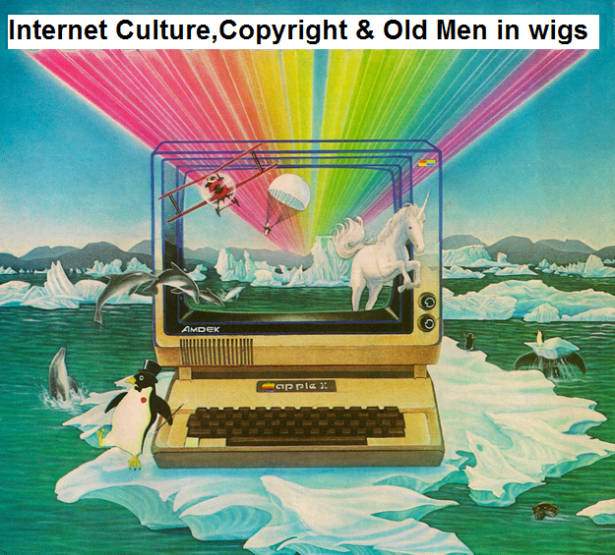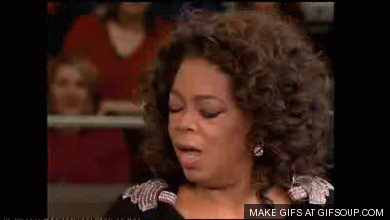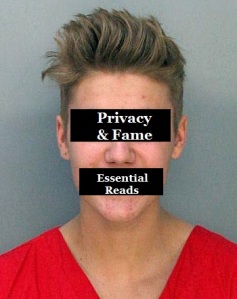For a while now it has seemed that the end of the Music Tech gold rush isupon us. While certain streaming services have begun calcifying into market incumbents, smaller more fan-focused products have begun to buckle, showing the limits of mass market demand for niche focused services. With major labels and rights-holders having cooled on their issuing of licenses to start-ups (and having grown more aggressive in their negotiating with major players), many are raising the question of where to now for innovation in music tech and digital consumption?
Looking at where the gaps in the market are left, I would argue that while we might indeed be entering into a development lull in consumer-focused music products, there is enormous room to innovate in the way the music industry acquires, administers and collects remuneration for musical works. In other words, the next major development will not happen in the “front end” of how fans consume music, but rather in the structural “back end” of how the underlying business itself works.
Music’s Back End: A Burning Dumpster Fire
As a starting point, its worth reiterating what anyone who works in Music regards as an obvious observation: licensing and rights administration are a god-forsaken mess.
Consider the path of a single track: an artist composes a song and writes some lyrics. In order to manage these rights effectively, they assign or license these rights to a Publisher who manages and collects remuneration on their behalf.
From there, they record a track with a Record Label who in return for the Master Right in the recording gives them a contractual right to a royalty. The management of some of the sub-rights associated with this Master Right will be farmed out to a collecting society, while other rights will be managed by the label itself. In addition to the traditional rights of yesteryear, today’s artist will also be highly concerned with the Sync rights, UGC derivative rights, digital distribution rights and public performance rights they might own in a work which may or may not have been grabbed by the label as well. This will be further complicated by the fact that consumption will happen concurrently in multiple jurisdictions over a variety of social media platforms with a host of different institutions issuing licenses and collecting payment on their behalf. Considering the popularity of EDM and Hip-Hop in today’s industry, you’d also need to consider the whole rigmarole of clearing samples or consider in turn how to manage a song being remixed or sampled into other pieces of music.
The system of rights management institutions is fragmented, uncoordinated and highly inefficient. A simple look at the immense litigation history in this area should settle any skepticism.
Multiple concerns have been raised within the industry itself about the ability of middlemen institutions and administrators to effectively and fairly collect compensation on behalf of the rights-owners they are meant to benefit. We’re stuck with an awfully quaint analogue back end in an era of multi-jurisdictional, multi-use, high volume digital consumption. Seen from another perspective, Music Copyright itself has a UX problem and it is reasonably clear that this system is at worst not fit for purpose and at best, begging for disruption. And here is where the next space for Music (and dare I say legal) Innovation lies.
Glimpsing the ‘Futch’
Imagine a platform wherein artists and rights-holders could easily upload a track and monetize their rights, issuing licences for live performances (such as DJ sets), sync opportunities, remixes or derivative uses from one neatly indexed and centralized space where users wanting to license rights could easily pay (using an integrated payment system) right next to their normal music listening and consumption. If it was a pitch meeting, “imagine a Soundcloud meets Licensing Ebay”.
Such a system would minimize waste, ensure clear transparency for rights-holders and would remove obstacles and checkpoints, creating a much easier user experience for not just those on the business back-end of music but consumers who want to attain rights for uses other than just listening.
The Game done Changed
Now you may ask, if this was so easy why hasn’t anyone done this already? And what would be different now? While there are a host of factors one could pick out, I’d highlight three particular elements which are changing dramatically and could open a space for this type of innovation where none had been before:
1) Rights Management Technology
Part of the justification for these middlemen institutions in the past was rooted in the fact that monitoring and controlling the exploitation of certain rights was an incredible schlep. How could an artist (let alone a label managing a whole roster) follow up on every use of the music it had the responsibility to control? It made sense in such an age for artists and labels to outsource this work to professionals who could track the usage of their work and claim the fees owed to them.
From a technical perspective however, we are fast moving away from this space: from the rise of constantly improving Content ID crawlers to Copyright Transaction Applications for the Block-chain, we are entering a period wherein following the paper trail of music usage is becoming much simpler and transparent. Instead of trained experts roughly working out where and for how long a work was used, we will soon be able to easily trace and target for monetization where works are being digitally consumed (covering both exact copies and UGC derivative works). If a platform could integrate and combine these technologies into a larger platform of indexing, consumption and payment, it would naturally follow from the artist’s original upload of their work thus excluding the need for a separate specialized institution or individual that would do this work.
2) Industry Practice: the shrinking importance of Record Labels
In the past, artists would sign deals with record labels as at its core, these institutions had (almost) exclusive access to the channels of distribution. If you wanted your music to be turned into consumable physical format (vinyl or CD) and pushed to an audience, you needed to do a deal with a label. With the advent of D2C music platforms however, artists can distribute their music to a global audience easily thus bypassing the need for their intervention. Already this has resulted in a boom of independent artists, smaller collectives and niche labels, with major record labels increasingly being seen as more of an agency for Marketing and Business Development.
The upshot of this as that while in the past artists were tied into labels and their historic contracts to publishers, collecting societies and other middlemen, artists can now entirely circumvent this process and license their work directly, eschewing the need for a corporate styled one-size fits all policy. Since independent artists are already licensing their consumption rights to these platforms, its of course a short jump to see them licensing all their other rights and more technically, licensing the right to license these rights on their behalf.
3) Consumer Behavior: Reintermediation and One-Stop-Shops
Reintermediation is a fancy way of saying consumers have grown tired of a fragmented digital media landscape and are moving back to centralized platforms wherein they can more conveniently consume large libraries of content. Especially in music, the days of users bouncing from one artist-owned website to another to score a download are over and users want to land on one single platform that can provide them with the bulk of their music consumption needs. Within my own use, I’ve moved from exploring the wide digital beyond of music blogs to a simpler diet of Soundcloud and Apple Music. Users might replace one of these services with say Youtube or Spotify, but by and large, we’ve seen users re-congregate around a handful of hubs which can provide them with everything. What does this have to do with the next phase of disruption and innovation in the music business you may ask?
In short, economies of scale and market consolidation: In a world where there are a 100 platforms splitting artists and users, rights-holders would be spread too thin in trying to track and manage the use of their work. Additionally, smaller companies without the existing audience of consumers, engineering infrastructure and brand goodwill would be unlikely to actually deliver such a system.
We are currently moving into the opposite set-up however where a handful of platforms could be one-stop shops for all uses as they have the necessary foundation of licensing deals, engineering infrastructure and existing consuming audiences to make good on a promise to deliver. Artists and rights-holders would thus be more inclined to take the leap of faith and hand over the full gamut of rights and administer them from one concentrated place, something that simply couldn’t have been done in years past.
Suffice to say, we are entering a time where some of the major elements (industry practice, management technology and market consumption) are all transforming, opening the space for a profound disruption to the back-end of music. Exactly what product solution and which company will break this frontier is unclear. Personally If I was playing around with it, I’d go for something like an integration between Soundcloud, Kobalt and a Blockchain-based Copyright Transactions solution like Ascibe. However I think what we could reasonably predict is that such innovation will happen within one of the dominant platforms (i.e. Spotify, Soundcloud, Youtube etc) and not from a start-up alone considering the point raised above.
Problems and Challenges: The Law (as per usual)
As we have seen in the past, dramatic changes in technology necessitate changes in law and copyright policy makers are faced with the somewhat exciting prospect of being able to innovate creatively in trying to create a legislative framework that will complement this shift.
(In my own somewhat nerdy imagination, I’m dreaming of a policy and technology combo where DJs need not clear a sample before usage and any revenue that is generated off the song automatically gets shared with the original rights-holder.)
However, before we sit back and dream the dream of a cleaner and better oiled Music Industry Machine, it would be worthwhile to point out a major concern: the threat to Safe Harbor.
On its own terms, this is a helluva complex topic being debated right now and I’m about to mix it up with some cheeky legal speculation. So please bear with me.
Safe Harbor is a copyright principle which defends Digital Platforms hosting User-Generated Content (Youtube, Soundcloud etc) against liability for hosting copyright-infringing material provided that they have adequate take-down mechanisms in place. The Traditional Music Industry of late however has fiercely argued that Safe Harbor creates “a value gap”. In short, the value-gappers moot that user-upload platforms don’t reliably catch unauthorized uses of copyright works and thus financially benefit from unlicensed copyright material. Their response to this currently is to lobby for the dismantlement of Safe Harbor.
The upshot of this is if we’re already having major challenges around Safe Harbor in the context of Streaming alone (involving the administration of only a couple of rights), this would almost certainly metastasize into a much larger mess and circlejerk of concerns about revenue being missed and the Value Gap widening if the full palette of an artist’s rights were being administered by one platform. Thus in terms of the next wave of back-end innovations, it is particularly important that Safe Harbor is protected and maintained.
More generally, I strongly feel this move to dismantle Safe Harbor protection is wrong-headed as it would lead to the impediment of innovation in the tech space and freedom of expression for us all. There are other alternatives to dismantlement which could achieve an equitable outcome without this loss: inspiration could be drawn from the legal remedies of Unjustified Enrichment or an Account of Profits. To preempt litigation, platforms should be willing to enter into compensatory agreements or alternatively, independent bodies could regulate this area.
That said, even if a Value Gap still existed afterwards, such a gap would be far preferable to the current inefficient and opaque mess which is the music copyright licensing and administration game.
In order to safeguard the space needed for the next wave of innovation in music tech, it is crucial that we resist this campaign against Safe Harbour and advocate for other solutions which would allow the industry to close the gap and still be provided protection from liability.
Looking Forward
We are not at an innovation horizon event but rather at a point of inflection. Cleaning up the back-end of music through smart applications and policy changes will be not just a boon to musicians, users and rights-holders but also a fantastic opportunity to rehabilitate the public’s trust in the integrity of the Music Industry and Copyright more generally. This should be a prospect of great interest to developers, music fans, policy makers and investors alike.




